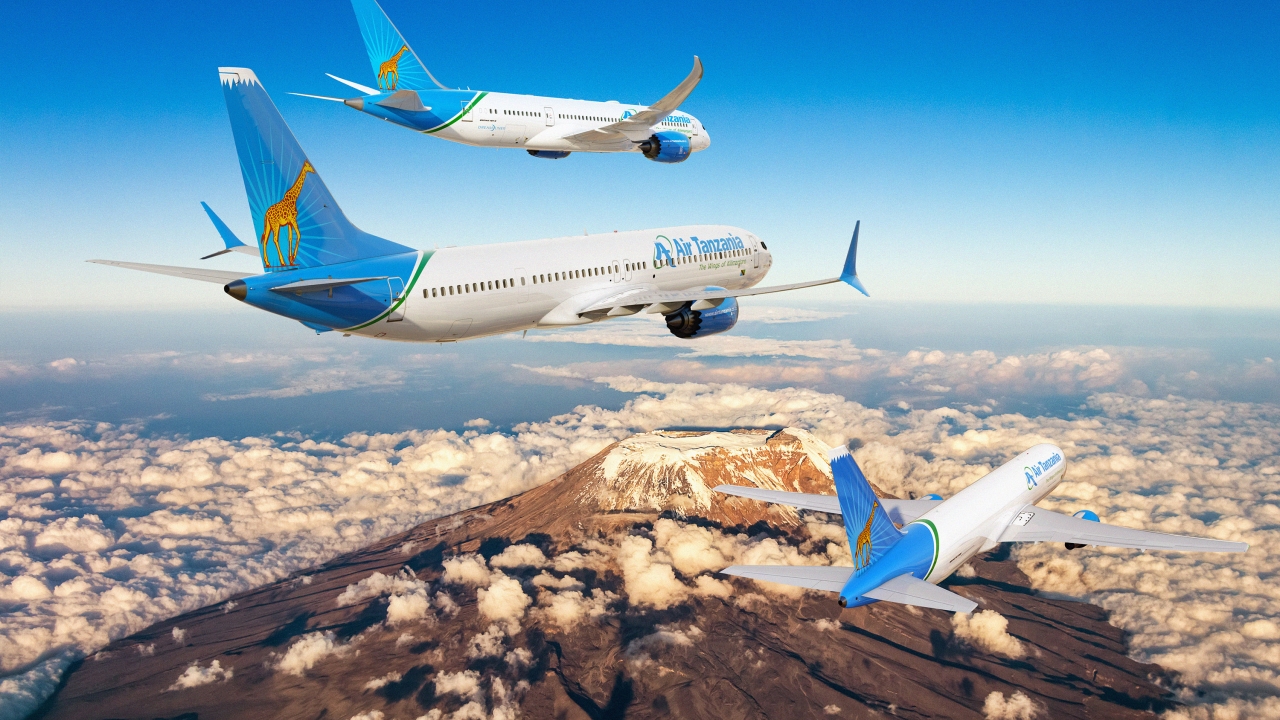Flagging up a furore
Zimbabwe’s shock decision to acquire four Boeing wide-bodies and set up a new flag-carrier raises more questions than answers, as Martin Rivers reports.

The delivery of a 13-year-old Boeing 777-200ER to Zimbabwe has ignited a row over corruption and alleged misappropriation of funds in the final days of former president Robert Mugabe’s rule.
Government officials welcomed the new aircraft – the first of four purchased from Malaysia Airlines – at a ceremony at Harare’s Robert Gabriel Mugabe International Airport on April 11. It is painted in the colours of a new airline, Zimbabwe Airways, which aims to restore long-haul connections formerly served by Air Zimbabwe, the chronically mismanaged state-owned flag-carrier.
Yet, without even taking to the skies, Zimbabwe Airways is already courting the same controversy that dogged Air Zimbabwe during Mugabe’s time in office.
Transparency is by far the biggest concern.
Having first claimed that Zimbabwe Airways is a private company funded by members of the diaspora, Joram Gumbo, the Transport Minister, has now said it is state-owned. Earlier statements to the contrary were, he insisted, designed to minimise the risk of aircraft seizures by Zimbabwe’s overseas creditors.
“That story would have made sense, but on the delivery flight it was spoiled by [Mugabe’s son-in-law, Simba] Chikore, who disembarked from [the aircraft] with full command stripes that he does not have,” said Jerry Haas, an African aviation expert based in Harare.
Chikore’s involvement with Zimbabwe Airways has fuelled speculation that the Mugabe family is still calling the shots in the local aviation sector.
In October 2016, Chikore was appointed chief operating officer of Air Zimbabwe after – based on his own account – Mugabe telephoned Gumbo to recommend him for the job. That same month, the three men travelled to Malaysia and agreed to buy four 777-200ERs for $70 million during a meeting with the country’s prime minister. At the time, the aircraft were intended for service with the historic flag-carrier.
However, Chikore resigned from Air Zimbabwe one year later, just as Mugabe was overthrown in a bloodless coup. And he took the 777 order with him, beginning work in a new, government-appointed role as the accountable manager of Zimbabwe Airways, which is leasing the planes from Zimbabwe Aviation Leasing Company, another state-owned firm.
Gumbo has downplayed the curious sequence of events, telling NewsDay that Zimbabwe Airways was actually set up in 2012 as a planned replacement for Air Zimbabwe – but that the project was put on ice to give the flag-carrier a chance to “resuscitate” itself.
His account is broadly endorsed by Finance Minister Patrick Chinamasa, who has described Air Zimbabwe as a “bottomless pit” that needs to “put its house in order” – a reference to its heavy debts, repeated corruption scandals, and last year’s EU blacklisting.
For his part, Chikore has only heightened concerns about transparency by making false claims in the media. Defending the lack of a public tender for the 777s, he told The Standard that $70 million was an “amazing deal” which represents “about 5% of the value” of the aircraft. He also claimed that maintenance work on the 2001- and 2004-build aircraft had made them like “brand new”, citing their recent C-checks.
George Dimitroff, head of valuations at Ascend, a consultancy that specialises in valuing aircraft, fact-checked the claim: “A C-check being performed does not make the aircraft ‘brand new’ … The C-check is only a small portion of overall maintenance cost, so it doesn't shift the value dial much.”
Dimitroff said the $70 million purchase price sounds “about right” for last year’s market conditions, noting that an oversupply of 777-200ERs has hit re-sale values in recent times. Establishing a precise valuation is not possible unless Zimbabwe discloses their full maintenance histories. If the four jets were delivered straight from D-checks, they could be worth up to $97 million. If they are in “half-life” maintenance condition, their value plummets to $53 million.
Putting aside questions about ownership and financial transparency, the biggest concern for Zimbabwe Airways is commercial viability.
Gumbo has already said that London will be the airline’s first route. But British Airways withdrew from the market in 2007, blaming Zimbabwe’s economic crisis for a collapse in business-class traffic.
Stay up to date
Subscribe to the free Times Aerospace newsletter and receive the latest content every week. We'll never share your email address.

